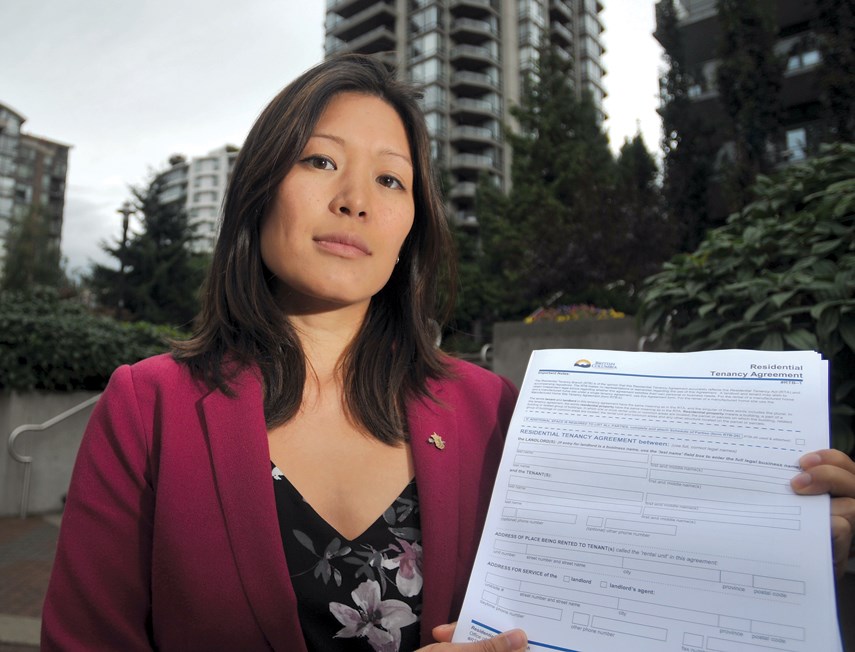Read the fine print before you sign.
That’s one piece of advice North Vancouver MLA Bowinn Ma is giving to local renters after a complaint to her office about potential rental increases over three times the amount allowed led to a warning being issued to a local landlord.
Ma said the issue of landlords using loopholes in law to get around rent controls isn’t new, but have become “more habitually used and taken advantage of” in recent years.
To deal with that, the province has cracked down on some of those, including ending landlords’ abilities to use fixed-term leases to bypass rent controls.
The government has also lowered the maximum amount landlords can raise rents annually to the rate of inflation – currently set at 2.6 per cent – rather than inflation plus two per cent as it was previously capped.
But earlier this year, Ma said her office got a complaint about landlords of an apartment building in Lower Lonsdale who were writing in a special clause in the fine print of the rental agreement allowing them to raise the rent by three times that much.
Ma said when she met with the building owners, their position was “the matter was perfectly legal.” They told her they were putting the clause into all new tenancy agreements for the 27-unit building, although it didn’t apply to existing tenants. The same owners own or manage six other rental apartment buildings in the Lower Mainland.
Ma said that didn’t sit well with her. “If every landlord wrote that into their agreements, it would render rent controls virtually pointless,” she said.
Eventually the new enforcement unit of the residential tenancy branch got involved.
Ma said the landlords finally agreed to stop adding the extra rent increase clause after the province threatened them with large fines of $5,000 a day.
Ma said she doesn’t know if other renters have been asked to sign similar agreements, but added she wouldn’t be surprised it that was the case.
Scott McGregor, director of compliance and enforcement for the province’s residential tenancy branch, said the recent North Vancouver example is just one of 74 cases the department has been involved with since it was set up in January.
In another recent case, a property management company was told to stop charging a fee to people who applied to rent an apartment – also not allowed under the law.
That company told the branch “there were several property management companies in the province that were doing this,” said McGregor.
Ma said helping people with tenancy issues is one of the areas her office deals with on a fairly regular basis.
Some people may sign rental agreements without fully understanding what they’re signing, said Ma, while others are so desperate to find housing that they’ll sign almost anything.
“If every landlord put in clauses that their rental increases were going to be nine and a half per cent per year and you couldn’t actually find a place that didn’t have that clause, you’d probably be forced to sign it,” she said. “A lot of renters do end up signing these kinds of clauses without knowing if they are legal or not because they need a place to live.”
In this case, that is what had happened to a number of existing North Vancouver tenants of the building, said McGregor. The company has now agreed to rescind the clauses allowing the large rent increases, so the tenants won’t have to pay more than the government allows.
So far, four landlords and one tenant have been fined for not complying with residential tenancy rules.
But “An important part of what we do is education,” said McGregor.
The real goal is to “change the culture out there among some landlords who might feel that the law doesn’t necessarily apply to them,” he said.
McGregor added that the vast majority of both landlords and tenants are obeying residential tenancy rules.



